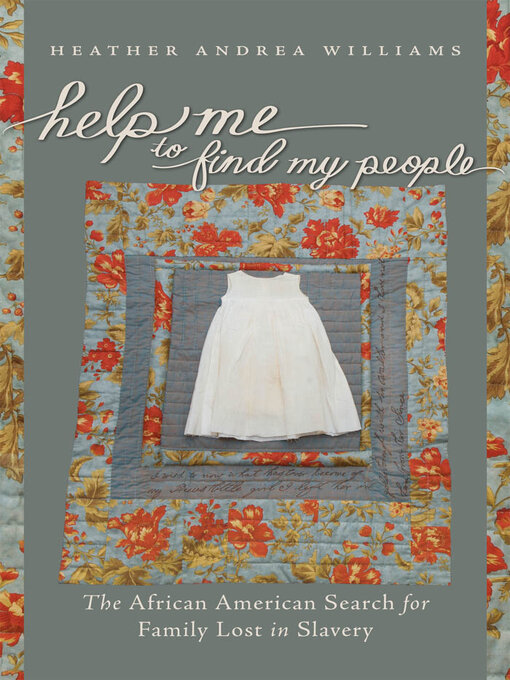After the Civil War, African Americans placed poignant “information wanted” advertisements in newspapers, searching for missing family members. Inspired by the power of these ads, Heather Andrea Williams uses slave narratives, letters, interviews, public records, and diaries to guide readers back to devastating moments of family separation during slavery when people were sold away from parents, siblings, spouses, and children. Williams explores the heartbreaking stories of separation and the long, usually unsuccessful journeys toward reunification. Examining the interior lives of the enslaved and freedpeople as they tried to come to terms with great loss, Williams grounds their grief, fear, anger, longing, frustration, and hope in the history of American slavery and the domestic slave trade.
Williams follows those who were separated, chronicles their searches, and documents the rare experience of reunion. She also explores the sympathy, indifference, hostility, or empathy expressed by whites about sundered black families. Williams shows how searches for family members in the post–Civil War era continue to reverberate in African American culture in the ongoing search for family history and connection across generations.
- Available now
- New eBook additions
- New kids additions
- New teen additions
- Most popular
- Try something different
- NYPL WNYC Get Lit Book Club
- Spotlight: Toni Morrison
- See all ebooks collections
- Available now
- New audiobook additions
- New kids additions
- New teen additions
- Most popular
- Try something different
- NYPL WNYC Get Lit Book Club
- Spotlight: Toni Morrison
- See all audiobooks collections
